There have been renewed calls for the introduction of wolves to curtail deer numbers in Co Donegal.
Killian McLaughlin, the founder of Wild Ireland animal sanctuary in Donegal, told RTÉ radio this week that, in his view, current attempts to cull deer may actually be increasing rather than decreasing numbers. He suggested that a stable wolf population would control numbers naturally instead.
“A cull [by humans] can increase the number of deer in the area because you're knocking out the dominant animals that are holding territory and keeping the subordinate animals at bay when the big fella gets taken out.
“The subordinates come in, they have a field day and increase in number and I looked at the figures from the Department of Agriculture and they seem to reflect that,” he said.
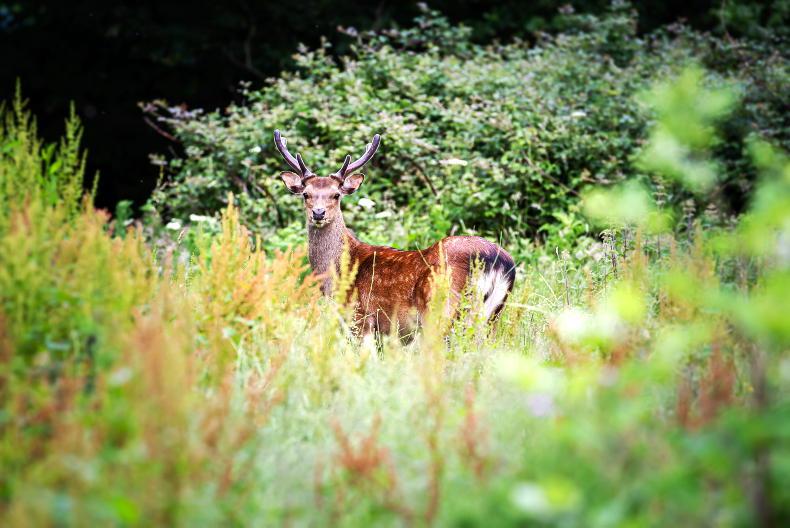
Deer culls aren't working, says McLaughlin. \ Philip Doyle
McLaughlin highlighted Department of Agriculture figures which he said show that in 1995 there were 4,500 deer culled and in 2020 there were 40,000 culled. “That's a 10-fold increase, which shows that culling doesn't work,” he said.
The Donegal man said he understands the fears of farmers who may be concerned that introduced wolves will attack livestock, but insisted this would not be as big a problem as suggested.
Livestock risks
Independent Councillor Michael McClafferty warned against McLaughlin’s proposals, said that he didn’t agree with them and that “they’re not going to work”.
“The wolf clearly is going to go for the easy pickings. What we have here in Donegal is mainly mountain areas. We’re vastly populated with sheep, with cattle and if you had wolves running rampant through Donegal, that’s what’s going to happen, they’re going to go for the sheep, the goat, the young calves and the lambs.
“They’re not going to bother with the deer necessarily. It’s clear what [the wolf is] going to go for and that’s the way it’s going to be,” he said.
US research
McLoughlin argued against this point and highlighted data from the US and the examples of wolf re-introductions on mainland Europe.
“The US Department of Agriculture did a huge study over 25 years and they looked at all causes of livestock deaths in America and it showed the wolves made up a very, very small percentage of that.
“Dogs, for example, killed a lot more sheep and cattle, and disease, neglect, all these other things and when they examined the dung of the wolves, the wild wolves, they found that domestic animals made up less than 1% of their prey,” he said.
The wildlife park owner said he believes Ireland is the “only country in the EU” that doesn’t have wolves and drew attention to Turkey, where sheep farmers are compensated for wolf attacks on their animals and use special guard dogs to protect their flocks.
McLoughlin said that farmers in Ireland are “not compensated when herds of deer move into their farm and destroy their crops” and, similarly, foresters aren’t compensated when the deer eat the bark from their trees.
He said the issue, and ultimately the control of deer in Ireland, needs wider debate.
Rise in attacks in Europe
McLoughin’s proposals jar with figures from Austria, which show there has been a 230% increase in wolf attacks on sheep in the country in recent years.
In September, the country’s minister for agriculture Norbert Totschnig said wolf populations in rural areas have risen to the extent that “farmers can no longer allow their animals to graze on Alpine pasture”.
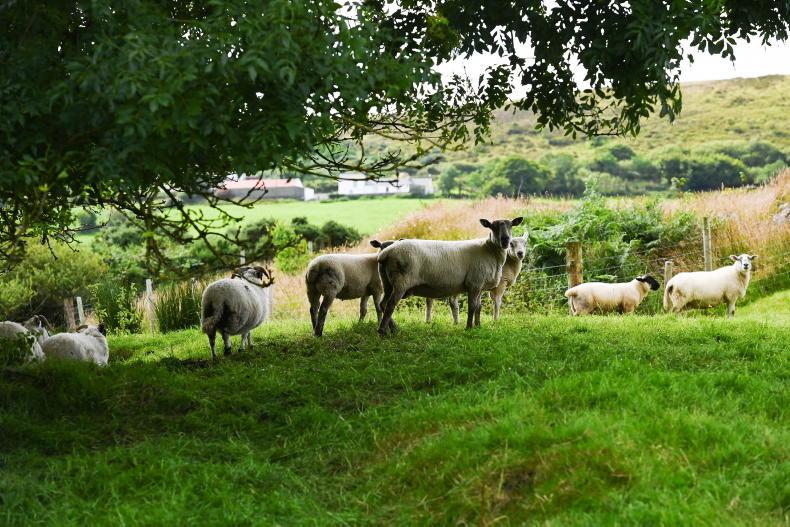
Sheep in Donegal would be targeted by wolves if they were to be introduced, says Cllr Michael McClafferty. \ Clive Wasson
He made the comments while calling on the European Commission to re-examine its current legislation on large carnivores, the habitats directive, which he said is a “threat to biodiversity-rich agricultural land”.
Speaking at a meeting of EU agriculture ministers, the Austrian minister was supported by his equivalents from Croatia, Finland, Hungary, Latvia, Romania and Slovakia in calling for greater controls on the growth of large carnivore populations in Europe.
Read more
230% increase in wolf attacks on sheep in Austria
There have been renewed calls for the introduction of wolves to curtail deer numbers in Co Donegal.
Killian McLaughlin, the founder of Wild Ireland animal sanctuary in Donegal, told RTÉ radio this week that, in his view, current attempts to cull deer may actually be increasing rather than decreasing numbers. He suggested that a stable wolf population would control numbers naturally instead.
“A cull [by humans] can increase the number of deer in the area because you're knocking out the dominant animals that are holding territory and keeping the subordinate animals at bay when the big fella gets taken out.
“The subordinates come in, they have a field day and increase in number and I looked at the figures from the Department of Agriculture and they seem to reflect that,” he said.

Deer culls aren't working, says McLaughlin. \ Philip Doyle
McLaughlin highlighted Department of Agriculture figures which he said show that in 1995 there were 4,500 deer culled and in 2020 there were 40,000 culled. “That's a 10-fold increase, which shows that culling doesn't work,” he said.
The Donegal man said he understands the fears of farmers who may be concerned that introduced wolves will attack livestock, but insisted this would not be as big a problem as suggested.
Livestock risks
Independent Councillor Michael McClafferty warned against McLaughlin’s proposals, said that he didn’t agree with them and that “they’re not going to work”.
“The wolf clearly is going to go for the easy pickings. What we have here in Donegal is mainly mountain areas. We’re vastly populated with sheep, with cattle and if you had wolves running rampant through Donegal, that’s what’s going to happen, they’re going to go for the sheep, the goat, the young calves and the lambs.
“They’re not going to bother with the deer necessarily. It’s clear what [the wolf is] going to go for and that’s the way it’s going to be,” he said.
US research
McLoughlin argued against this point and highlighted data from the US and the examples of wolf re-introductions on mainland Europe.
“The US Department of Agriculture did a huge study over 25 years and they looked at all causes of livestock deaths in America and it showed the wolves made up a very, very small percentage of that.
“Dogs, for example, killed a lot more sheep and cattle, and disease, neglect, all these other things and when they examined the dung of the wolves, the wild wolves, they found that domestic animals made up less than 1% of their prey,” he said.
The wildlife park owner said he believes Ireland is the “only country in the EU” that doesn’t have wolves and drew attention to Turkey, where sheep farmers are compensated for wolf attacks on their animals and use special guard dogs to protect their flocks.
McLoughlin said that farmers in Ireland are “not compensated when herds of deer move into their farm and destroy their crops” and, similarly, foresters aren’t compensated when the deer eat the bark from their trees.
He said the issue, and ultimately the control of deer in Ireland, needs wider debate.
Rise in attacks in Europe
McLoughin’s proposals jar with figures from Austria, which show there has been a 230% increase in wolf attacks on sheep in the country in recent years.
In September, the country’s minister for agriculture Norbert Totschnig said wolf populations in rural areas have risen to the extent that “farmers can no longer allow their animals to graze on Alpine pasture”.

Sheep in Donegal would be targeted by wolves if they were to be introduced, says Cllr Michael McClafferty. \ Clive Wasson
He made the comments while calling on the European Commission to re-examine its current legislation on large carnivores, the habitats directive, which he said is a “threat to biodiversity-rich agricultural land”.
Speaking at a meeting of EU agriculture ministers, the Austrian minister was supported by his equivalents from Croatia, Finland, Hungary, Latvia, Romania and Slovakia in calling for greater controls on the growth of large carnivore populations in Europe.
Read more
230% increase in wolf attacks on sheep in Austria







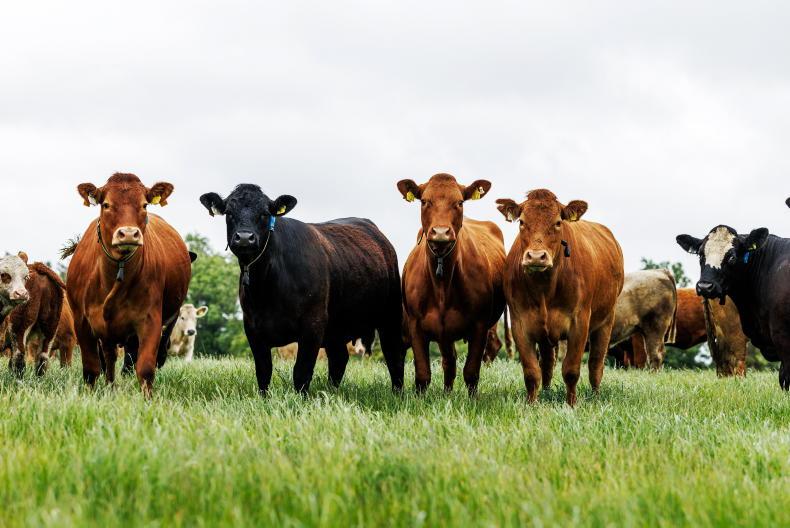

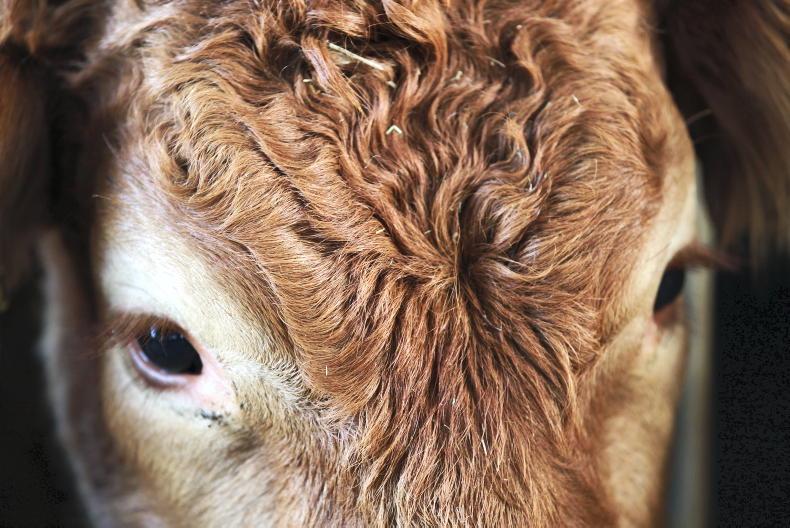

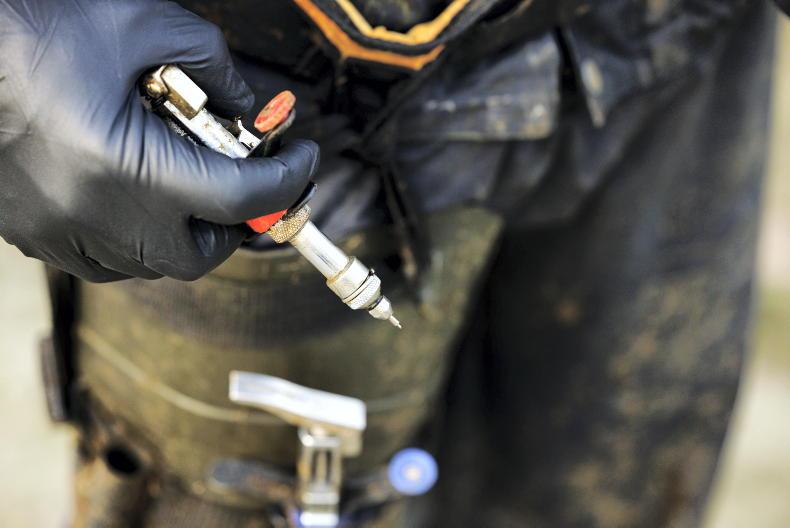
SHARING OPTIONS